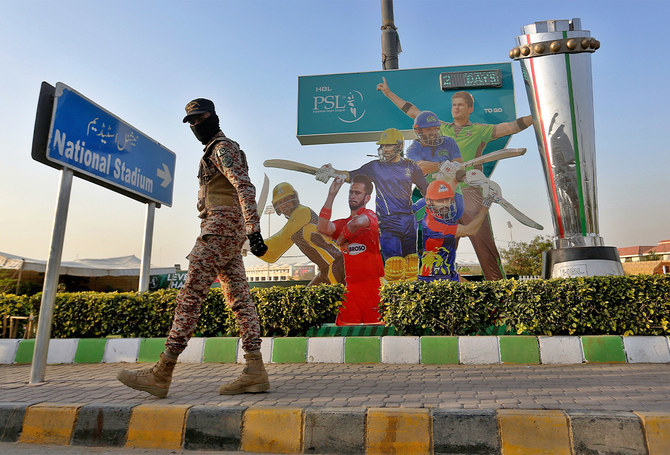ISLAMABAD: Several players were added to Pakistan Super League (PSL) teams as the six franchises held a supplementary and replacement draft for the 9th edition of the Twenty20 cricket league, according to the Pakistan Cricket Board (PCB).
The PSL is Pakistan’s professional T20 men’s cricket league which was launched in 2015 by the PCB. The league has won praise from sports fans throughout eight editions and is regarded as one of the most entertaining T20 cricket leagues around the world.
The replacement and supplementary draft is an important event of the league that sees franchises name replacements for players who are partially or fully unavailable for the tournament.
“Several supplementary and replacement players have been added to the six HBL Pakistan Super League squads, for the ninth edition that begins on 17 February, during the Replacement Draft,” the PCB said in a statement.
Peshawar Zalmi, announcing their replacements, drafted Waqar Salamkheil in the silver category for Lungi Ngidi, who was not available for the whole season after being picked in the PSL draft in December. Fast bowler Khurram Shahzad will be partially available, with pacer Arshad Iqbal named as his replacement in silver category. Gus Atkinson is set to replace Noor Ahmed, who is not available to Peshawar Zalmi due to international commitments. Meanwhile, they have reserved their pick for the replacement of partially available Naveen ul Haq. Lahore Qalandars reserved their picks for Rashid Khan, fully unavailable and Dan Lawrence, partially unavailable to the franchise, according to the PCB.
Islamabad United, too, reserved their pick for Tom Curran, who will not be part of the side for this HBL PSL edition. Karachi Kings have called in Zahid Mehmood as a partial replacement of Kieron Pollard while they have reserved their pick for Tim Seifert, who will be available after the conclusion of the New Zealand T20Is. Quetta Gladiator’s Bismillah Khan will replace Wanindu Hasaranga after Sri Lanka’s Hasaranga will leave the squad during the tournament owing to his international commitments.
In the first and second pick of the third supplementary round, left-arm pacers Luke Wood and Obed McCoy were bagged by Peshawar Zalmi and Islamabad United, respectively. Karachi Kings had the third pick and they went for English middle-order batter Leus De Plooy, while the fourth pick belonged to Lahore Qalandars who took on board Sri Lankan wicketkeeper-batter Bhanuka Rajapaksa, who featured for Peshawar Zalmi in the last PSL season.
Multan Sultans had the fifth pick in the third supplementary round and they went for the experienced West Indian wicketkeeper-batter Johnson Charles, who has represented Sultans and Quetta Gladiators in previous PSL seasons. Quetta Gladiators, with the last pick of the round three, drafted English batter Laurie Evans, who previously appeared in his solitary PSL season for Multan Sultans in the 2019 edition.
The fourth round of the supplementary picks saw Sultans bagging the exciting 19-year-old Muhammad Shahzad, who was part of Pakistan U19 at the ICC Men’s U19 World Cup 2022. Haider Ali was drafted into the Islamabad United squad, with the batter all set to feature in his fifth PSL season and Islamabad being his third franchise.
Quetta Gladiators reserved their pick in the fourth round. The fourth pick of the round saw Peshawar Zalmi drafting in left-arm wrist spinner, Sufiyan Muqeem, who was part of the same team in the last PSL season. With the fifth pick in this round, Lahore Qalandars picked up Tayyab Abbas, a product of their player development program. Karachi Kings drafted 21-year-old Mohammad Rohid as part of their squad.












